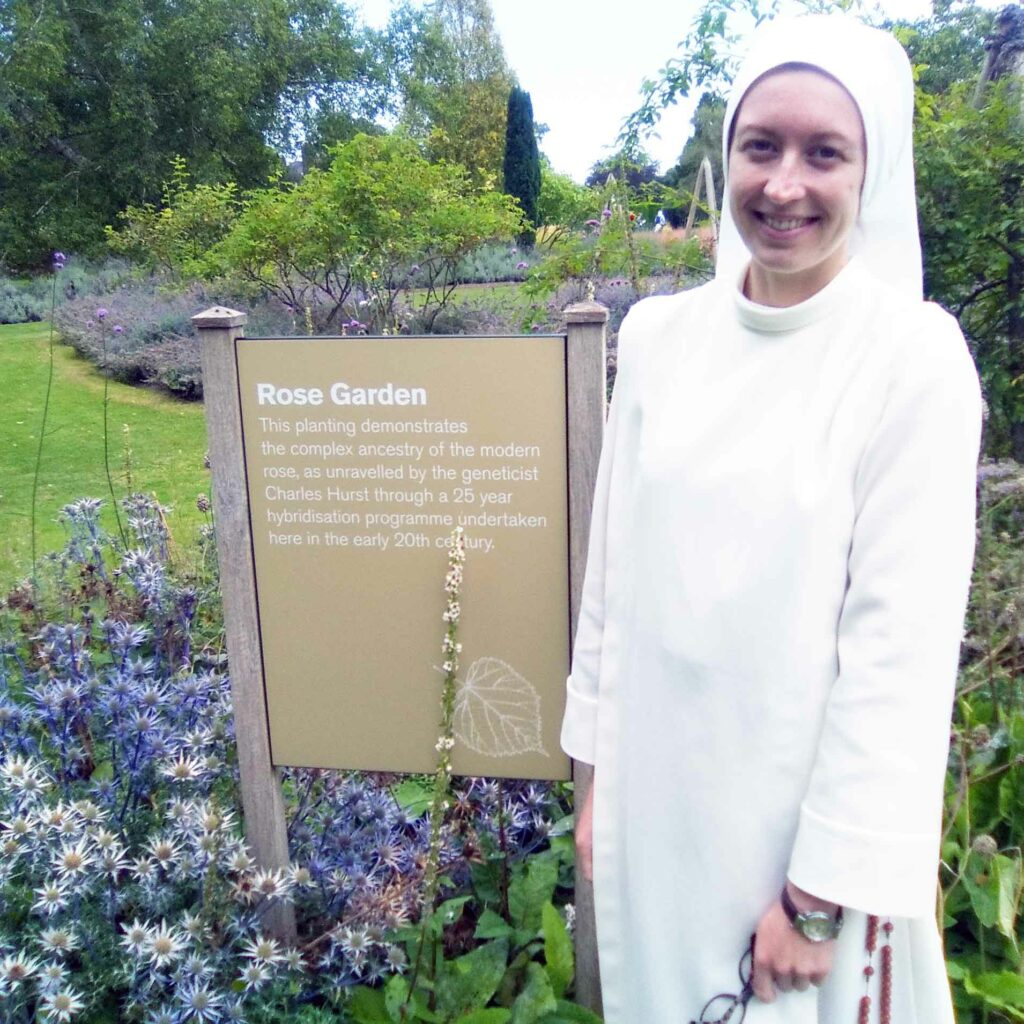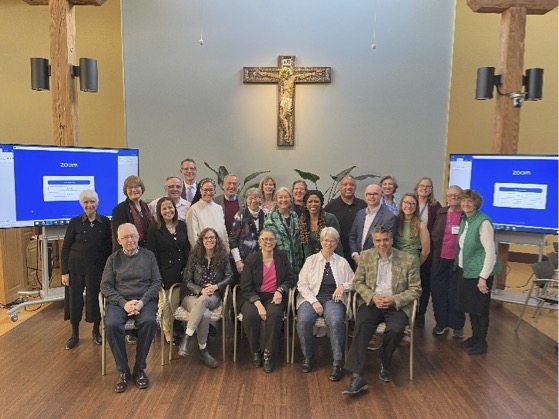24 Jan 2023
Belonging to Christ
Podcast: Play in new window | Download
For 24 January 2023, Tuesday of week 3 in Ordinary Time, based on Mark 3:31-35
Then Jesus’ mother and his brothers came; and standing outside, they sent to him and called him. A crowd was sitting around him; and they said to him, ‘Your mother and your brothers and sisters are outside, asking for you.’ And he replied, ‘Who are my mother and my brothers?’ And looking at those who sat around him, he said, ‘Here are my mother and my brothers! Whoever does the will of God is my brother and sister and mother.’
————-
One of the most enriching experiences I had before I became a Dominican was spending a year living in a Catholic charismatic lay community. This community was open to people of all states of life, and in my time, it was comprised of single people, priests and married people, some with children. Their aim was to be a community of disciples on mission, a community made up of Catholics from different states of life gathered together to make the Good News of Jesus Christ known through direct evangelisation in schools, parishes and their retreat centre.
It was a rich experience to live with people with a diversity of vocations and charismatic gifts. However, as we know from St Paul’s metaphor of the Body of Christ, any community also needs a point of unity – diversity alone tends towards fragmentation. What united us in this community was our common baptism – and baptism lived, loved and believed in as the most transformative call of Christ in our lives as Christians, not just as a one-time sacramental experience or abstract theological idea. As the catechism tells us: holy baptism is the basis of the whole Christian life, the gateway to life in the Spirit. Through Baptism we are freed from sin and reborn as sons of God; we become members of Christ, are incorporated into the Church and made sharers in her mission”. By diving deep into the meaning of our baptism, we were reminded of the universal call to holiness and united by the fact that before any other religious or social status, we are brothers and sisters in Christ.
In today’s Gospel, Jesus’ asks the question: “Who are my mother and my brothers?”. Somewhat unusually, Jesus also provides an answer: whoever does God’s will is my brother and sister and mother.” We hear Jesus identify others’ belonging to him not through geographical proximity, or kin relation, or mere self-identification, but through those who know him and love him, and who demonstrate that through doing the will of God. And doing the will of God not just once but repeatedly – the Greek word for “does” is a Greek present participle which implies ongoing behaviour. And how do we know the will of the Father? We know it through Scripture, through the commandments, through the teaching of the Church and through what we discern in our own spiritual journey. So, it is our obedience to His words and His will that brings us into friendship with Him. This is simply the gift of baptism, the call of discipleship.
We hear a similar lesson in the Parable of the Sheep and the Goats. Here again, the people Jesus identified with were not automatically those who called Him ‘Lord’, self-identifying as believers but not doing His will, but rather with the suffering – the hungry, the imprisoned, the sick – and with those who show mercy towards the suffering through their deeds – giving drink to the thirsty, welcoming strangers and more.
This truth is a great opportunity and a great challenge. Jesus’ recognition of other’s belonging to him by their obedience challenges any attitude of nepotism or cliqueness or self-righteousness which can affect any community, the Church included. This calls for a great expansion of heart, just as Jesus’ demonstrates in today’s reading. He was not dismissing his kin, but instead opening up his familial relationships to includes many others – in today’s Gospel that meant those seated beside him, listening to His teaching, but it included all those who would follow him throughout history.
Through baptism, Jesus invites us into His family, the Church. Through grace, we too are called to go beyond the confines of blood relations or social etiquette to open ourselves to others – this is what it means to be merciful, to reach out. This is supposed to be the radical witness that religious communities testify too, communities “who were born, not of blood, nor of the will of the flesh, nor of the will of a man, but of God” to quote St John’s Gospel. The sign of the kingdom, of the redeemed community, is people united in love, faith and obedience as brothers and sisters of the Lord.
A man who had a great sense of the unity and potential of all Christians in this way was St Francis de Sales, a 16th Century pastor and bishop of Geneva, whose memorial we also keep today. Although St Francis lived four hundred years ago, his vision and writings are deeply in tune with the movement of the Church in our time, which is nothing more than returning to the original teaching of Christ.
The books, letters of spiritual direction and pastoral guidance he gave to his diocese all show us a man who esteemed everybody with great dignity, a potential brother and sister, and a man who was highly attuned to the unique gifts and individual mission of every Christian. In his book Introduction to the Devout Life, a book written especially with the laity in mind, he states that devotion [or holiness] is possible in every vocation and profession. He says that God commands “all Christians, the living plants of his Church, to bring forth the fruits of devotion, each according to this position and vocation, and that this devotion must be exercised in different ways by different people.
This was not a normative or popularised idea in the Counter-Reformation Church, where holiness was still largely the reserve of priests and Religious. It’s a truth which was explicitly and universally proclaimed only with the promulgation of Chapter 5 of Lumen Gentium, one of the documents of the Second Vatican Council. Yet far earlier, St Francis was a great encourager of Christian fraternity amongst a diversity of people, and the individual’s pursuit of holiness as simply the destiny of baptismal grace. He recognised that the true hierarchy in the Church is that of holiness and that anyone who does the will of God is a brother and sister and mother of Jesus, and by implication, of himself too.
So obedience to Christ is our common task, the call and destiny of our baptism. The degree of our obedience to his will is the degree to which we are intimate with Him. If we remain in Him through obedience, he will recognise us as his brother or sister.
Scripture passage from the New Revised Standard Version Bible: Catholic Edition, copyright 1989, 1993, Division of Christian Education of the National Council of the Churches of Christ in the United States of America. Used by permission. All rights reserved.



25 January 2023 @ 3:02 am
Thankyou Sister Rose for your take on today’s Gospel and on St Francis’s especial charism.